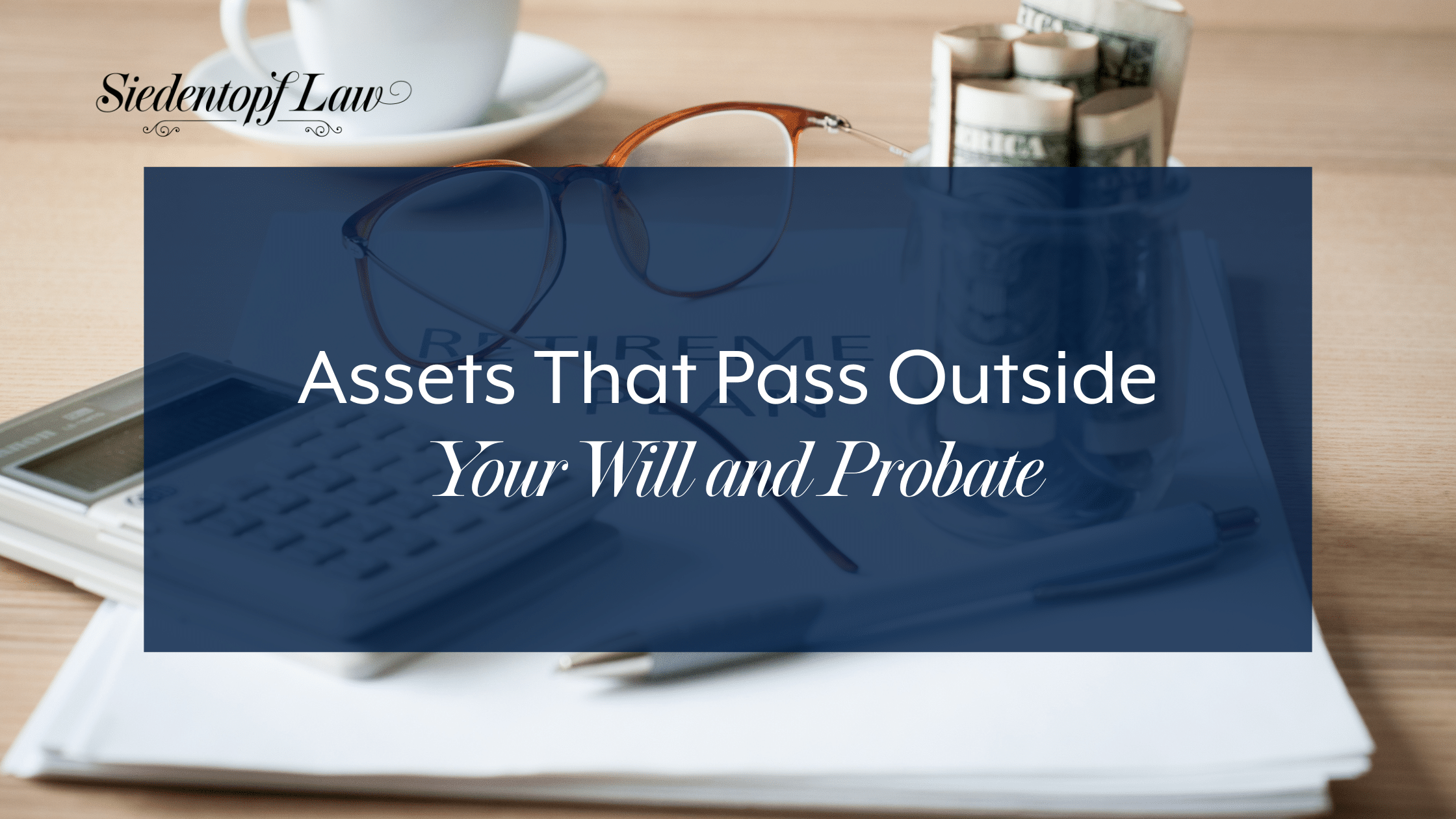Assets That Pass Outside Your Will and Probate

Summary: Want to make sure your heirs and beneficiaries receive everything you intend? Siedentopf Law takes a look at different types of assets (property, accounts, insurance policies, business holdings) and explains which ones may pass outside of your will and the probate process.
When you are figuring out your estate plan, it is important to understand which assets will pass under your will and which assets, or ways of holding assets, will pass on their own by operation of Georgia law regardless of what your will says. The reason this is important is that when you leave something to someone in your will, you want to know that the asset is actually going to the person you intended.
Real property
Land may pass under your will, but this depends on how the title is held. If you own a piece of property outright and there are no other co-owners, it will pass under your will. However, if you own a piece of property jointly with someone else and there is a “right of survivorship” in the title, that property will go directly to the co-owner, no matter who you give it to in your will. This also applies to cars, boats or anything owned with a title. The specific wording on the title tells you what will happen.
In July 2024, Georgia lawmakers passed a law allowing real estate to transfer on death if a Ladybird Deed is in place. This means, real estate can pass directly to a named beneficiary at the death of the property owner if the deed allows for this. Keep in mind, a Ladybird Deed may not be the best tool for your estate. Often a Trust is the best way to transfer real estate ownership. This is why it’s crucial to work closely with an estate planning attorney to accomplish your goals.
Check out our video on avoiding probate on your house.
Bank accounts
Just like land, whether the money in your bank accounts passes under your will depends on how it is held. If you have a Payable on Death account (POD), then the money in your account will automatically go to the person that you have designated in the bank documents. If you own a bank account jointly with someone else, that money will belong entirely to the joint owner of the account, no matter who you might want it to go to. This can be especially important to remember if an elderly parent is putting a child on his or her bank account for convenience sake but expecting the money to be split equally with other children.
Investment accounts
Investment accounts can be Transfer on Death (TOD) just like bank accounts can be Payable on Death.
Retirement accounts
Your pension, profit-sharing plan, 401(k) and IRA will all transfer to the person that you have designated as the beneficiary in the paperwork. This makes it important to review these documents every few years, or whenever big life changes occur, to make sure the beneficiary designated is still the right one.
Life insurance
Life insurance goes to the beneficiary that you designated when you sign up for it. This is not considered part of your estate.
Business partnerships
This depends entirely on what your contract/business agreement says. It may provide for your partners to buy you out and give the money to your estate, or at least give your partners a right of first refusal. It could also say that your heirs will inherit your shares in the business but not be able to vote. This one varies with every contract/LLC agreement/business contract. The key here is to read your documents so that you know what will happen.
When crafting your estate plan, make sure you know how everything is owned so that you know what will happen to the assets when you pass away. If you aren’t positive, find the paperwork and check to be sure. If you look at the paperwork and still can’t tell, you can contact Siedentopf Law at (404) 736-6066 or visit our website EstateLawAtlanta.com. We would be happy to help interpret the estate planning documents for you. Having a firm grasp of how this works is important to feel confident in your estate planning decisions.


